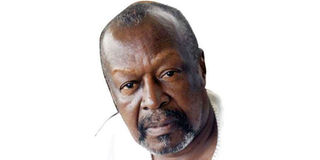Prime
John Nagenda: The most interesting man around President Museveni

John Nagenda. PHOTO/ FILE
If there are people whose praise I crave and whose censure I dread, then John Nagenda (Sir John to me) ranks very high among them. Several months back, as we were rummaging in the ashes to revive the dying embers of The Democratic Alliance (TDA) in the wake of Kizza Besigye’s exit and Gilbert Bukenya turning tail and rejoining Museveni, I couldn’t restrain myself from throwing invectives at Bukenya.
I recall describing the man hitherto known as Mahogany in demeaning terms as a papyrus reed (a kitoogo). Later that day John Nagenda called and first let out a hearty laugh. He told me he was lost for words capable of aptly describing Bukenya’s political flip flops until he came across my description.
“There is no better word. Well done,” he told me. We talked about many other things and he invited me to his home.
I found my way to the leafy Nagenda residence easily with the help of police officers stationed at a post nearby. He took me on a tour of the large house and the grounds. In the living room there was a massive hand carved centre table with all the totems of the clans of Buganda beautifully displayed. We walked around the table as he explained the meanings and significance of each of the clans and their totems and unique roles in the Buganda royal constellation.
I first heard of Nagenda in secondary school in the late 80s. I was in an argument about which other Ugandan apart from Okot P’Bitek has been published in the African Writers Series. That is when Nagenda’s book The Seasons of Thomas Tebo was brought up. The book is vintage Nagenda. It’s about the struggle for power and the disillusionments that follow such struggles.
Nagenda has been a fixture in the image making campaign that has turned the NRM from a rag tag army led by young intellectuals who failed to settle in any of the traditional political parties, to a trendsetting African political movement. And his qualities made him fit for this role. He has a solid intellect, a way with words and a supreme (some say arrogant) confidence in his own sense of judgement.
We talked about many things. Those who have never been close to Nagenda may see him as very aloof. In reality, Nagenda is very warm. I tried to look for a literary character to compare him with and Okonkwo’s friend Obierika kept coming to mind. Indeed like Obierika, Nagenda is “a man who thinks about things”. His words are measured and deployed for maximum effect. He also has a mischievous sense of humour. Sometimes he lets out a joke at which you laugh only to discover that the joke was at your expense.
I even complained about his bare knuckle attacks on Ssemogerere’s 1996 campaign. The devastating media smear campaign that attacked Ssemogerere’s presidential bid as a Trojan horse for Obote’s return was Nagenda’s brainchild.
Images of skulls were published in the newspapers with the innuendo that a vote for Ssemogerere would dishonour the memory of those who died in Luweero Triangle. Radio waves were inundated with ad spots threatening that without Museveni we would go back to the “dark old days” of “panda gari” and trigger happy soldiers at arbitrary roadblocks. At the time this propaganda was unquestionably imbibed. Of course, Nagenda defended himself vigorously.
Now Nagenda is in the news for opposing the lifting of the constitutional age limit. He has presented cogent and persuasive arguments that cannot be ignored. He paints a picture of the deluge of chaos that will ensue in case the Museveni reign ends like those of his predecessors. One reading of his interview on the subject of the age limit is not enough. Most of the meaning is between the lines. Nagenda is a master of subtlety and nuances. The best about this grand old man is that he is impossible to misunderstand.
Perhaps Nagenda’s novel explains his current stance. In it, he shares a folktale about a princess and a forest leper: “Once upon a time, a princess fell asleep when she shouldn’t have since there was a leper in the forest. His weak hand was like a feather and she did not wake up when it touched her, otherwise she mightn’t have been too late to save herself. Her sleep and his feather of a hand undid her and that’s the moral of the story.”
Uganda should awake from her sleep of innocence and fight off any further violation.
[email protected]


